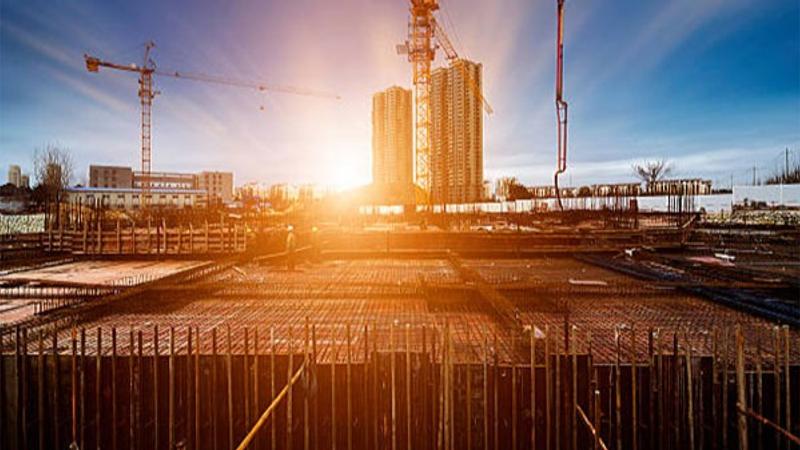Published 19:41 IST, July 22nd 2024
Budget 2024: What Does Noida Real Estate Developers Expect?
Real Estate developers are seeking financial incentives including tax sops from the government in the Budget which is set to be tabled tomorrow.

Noida: Real estate developers in Noida and Greater Noida in western Uttar Pradesh expect the first Budget of the Modi 3.0 government to accord 'industry status' to their sector for easier access to funds, and address woes related to GST, including the 28 per cent taxation on cement.
Hoping for "nuanced approach" to real estate woes, the developers seek the government's support beyond fiscal incentives, with the upcoming Budget focussing on enhancing transparency and efficiency through a robust regulatory framework, streamlined approvals process.
Industry body CREDAI's western UP Secretary Dinesh Gupta said boosting the real estate sector with tax incentives, improved tax structures, and a single-window clearance policy will encourage further investment from both domestic and foreign sources.
"Furthermore, tax reforms that lower income taxes for both corporations and individuals, simplify tax legislation, offer targeted incentives, expand the SWAMIH stress fund, and lower the GST rates on building materials will boost the building industry and improve the situation for real estate players," he said.
"The combined effect of these reforms will raise the amount of money accessible to taxpayers, enabling them to buy real estate more enthusiastically and ultimately speed up the nation's economic growth," Gupta said.
Bhutani Group CEO Ashish Bhutani said the country's real estate sector's contribution in GDP is much lower when compared to Europe or China and batted for taking it up to 30 per cent by 2047.
"I believed there should be 100 per cent relief on GST for low and mid-income housing and the GST rebate should be in a way that developers should at least get input credit, which can be passed on to buyers," he said.
Avneesh Sood, Director of Eros Group, said while industry status for real estate and revived incentives for affordable housing remain key expectations, a nuanced approach is crucial.
"Beyond fiscal incentives, the Budget should focus on enhancing transparency and efficiency through a robust regulatory framework and streamlined approvals process. Introducing innovative financing mechanisms, such as green bonds tailored for sustainable urban development, could align economic growth with environmental stewardship," Sood said.
Amit Modi, Director of County Group, said, "One of the most long-standing demands the sector emphasises upon is the need to grant industry status to enable easier access to low-cost financing, which benefits consumers directly. Additionally, implementing single-window clearance is crucial for timely project completion and cost efficiency." "Furthermore, reintroducing GST input credits for residential real estate will stabilise costs. We also expect to increase the home loan interest exemption to Rs 8 lakhs annually to support first-time buyers, while Section 80C should exclusively cover housing loan principal deductions or raise its limit to Rs 5 lakh," he added.
RG Group Director Himanshu Garg noted that to improve housing accessibility, tax slabs should be raised and limit of affordable housing should be revised.
"Industry experts are in favour of raising the housing affordability cap in metro areas, including NCR, from Rs 45 lakh to Rs 75 lakh. As a basic need of person and safe investment, home loan rates should be low and the limit of the credit-linked subsidy scheme (CLSS) can also be increased," he suggested.
"Aside from that, simplifying GST is essential to lower expenses and improve affordability for homebuyers. Additionally, easing FDI regulations will draw in international capital, promoting growth and innovation in the luxury market," he added.
Migsun Group MD Yash Miglani said the GST on cement, a key consumable, stands at 28 per cent, making up nearly one-third of the total cement cost, a significant concern.
"Addressing this and other issues (GST, industry status, single window clearance) are much-anticipated demands which would provide a much-needed boost to the sector," Miglani said.
Trident Realty's Group Chairman S K Narvar said investors, developers, and homeowners alike stand poised, hoping for a budget that promotes "ease in procedures, transparency in transactions, and encouragement for sustainable practices".
Gulshan Group Director Deepak Kapoor said, "Reducing input costs for steel, cement, and fuel is critical. The GST on cement, currently at 28 per cent, should be lowered. Additionally, there is a need to promote affordable housing and introduce tax incentives to help achieve the nation's housing objectives." Finance Minister Nirmnala Sitharaman will present the 2024-25 Budget -- the first during the third term of Prime Minister Narendra Modi -- in Parliament on July 23.
(Except for the headline, this story has not been edited by Republic and is published from a syndicated feed.)
Updated 19:42 IST, July 22nd 2024




